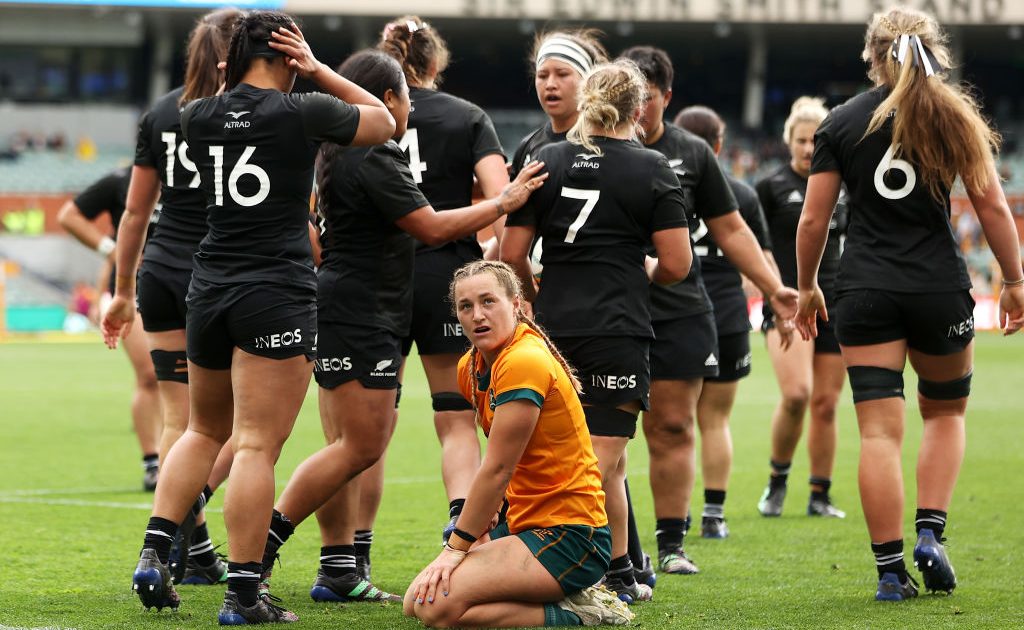'We don't feel like there's any pressure': Wallaroos want to break duck in World Cup opener

Without the burden of favouritism, Australia can enjoy a free hit against women’s Rugby World Cup hosts New Zealand on Saturday night.
There’s no expectation for the Wallaroos against the Black Ferns because there’s no form-line that suggests they may win.
Australia have never beaten New Zealand in 22 Tests of trying.
Jay Tregonning’s side have lost their last six Tests against all-comers – including three against the Black Ferns – and have just one win in three COVID-hit years, against world No.21s Fiji back in May.
One Australian betting company has New Zealand at $1.02 to win, while another prominent bookie isn’t even offering a market on the match, instead setting a line of 27.5 points.
The Black Ferns were in ruthless form at Eden Park last week, belting Japan 95-12 in a tune-up for the occasion.
Compounding the task for Australia, New Zealand’s home of rugby is poised to smash a world record for women’s rugby attendance for the match, with the vast majority of 40,000 expected to be clad in black.
It’s hard to imagine a tougher task in world rugby.
Tregonning, ever the optimist, is looking on the bright side.
“We’ve got this awesome opportunity for a group of Wallaroos to experience this venue at a large capacity,” he said.
“Some have experienced facing the Black Ferns there but nothing like the experience that awaits them. I’m really excited for the players to use that energy but from our point of view, we don’t feel like there’s any pressure at all.”
Of the three trans-Tasman Tests this year, Australia can at least look back on a first-half lead at Tauranga in June, a first in their history.
The last hit-out was a 22-14 loss in Adelaide last month, highlighted by two tries to debut winger Bienne Terita, who will earn her second cap on Saturday night.
Olympic gold medallist Sharni Williams has also swapped sevens for the tournament and has been named in the run-on XV, along with Sera Naiqama for her first Wallaroos start, one of a whopping 14 Waratahs in the Wallaroos’ 23.
While Australia are little chance to triumph on Saturday night, they can still harbour hopes of reaching the knockout rounds.
The world No.7s face 10th-ranked Scotland on October 15 and ninth-ranked Wales on October 22 in the group phase.
Of the 12 teams in the tournament, eight progress to the quarter-finals meaning two wins would guarantee progression, and just one win would have them in the hunt.
Australia finished sixth in the last tournament, played in Ireland in 2017.











































































